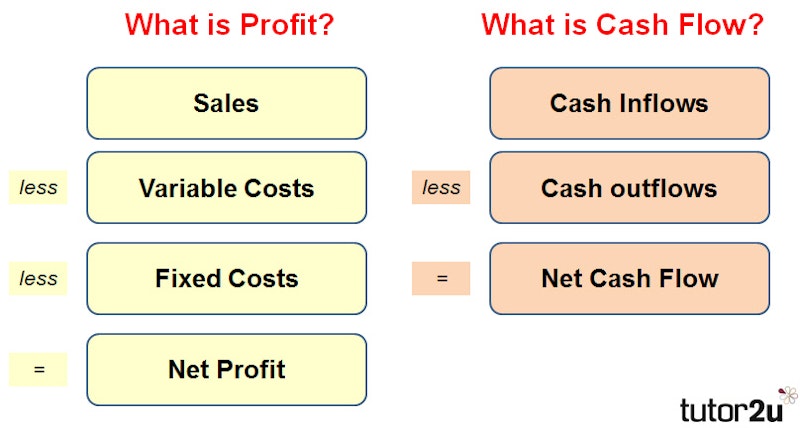Study Notes
Profit and Cash Flow - What is the Difference?
- Level:
- AS, A-Level
- Board:
- AQA, Edexcel, OCR, IB
Last updated 22 Mar 2021

Profit and cash flow are two different calculations – as shown above.
There are two main ways in which net cash flow differs from net profit during any accounting period:
(1) Timing differences
These arise because a business may not received cash straightaway from a customer and it may also delay payment for its costs.
For example, a customer may buy goods for £50,000 but be allowed to pay for those goods in 60 days.
(2) The way that fixed assets are accounted for
Fixed assets are the assets that a business means to keep. They are treated as capital expenditure in the financial statements – that means that the cost of those assets is not treated as an operating cost. So:
- Payment for fixed asset = cash outflow
- Cost of fixed asset = treated as an asset not a cost
- Depreciation is charged as cost when the value of fixed assets is reduced
Let’s look at a few more example transactions to help make the point about how cash flow can differ from profit:

You might also like
Profit - What is it?
Study Notes
Income Statement (Revision Presentation)
Teaching PowerPoints
Finance: Dealing with a Cash Flow Problem (GCSE)
Study Notes
Liquidity Ratios (Financial Ratios Explained)
Topic Videos
Calculating and Measuring Profit
Teaching PowerPoints

FREE CPD Webinar - Making Finance Fun!
7th September 2016

Lunchtime Learning with the Calculation Practice Book!
2nd February 2018
Cash Flow Objectives of a Business
Topic Videos